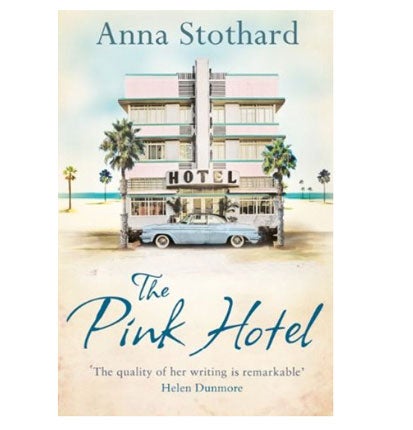The Pink Hotel, By Anna Stothard
Family life from a teen's perpsective

Family relationships are the primal mystery of literature, and for a young novelist they offer fertile ground as a way of scrutinising the adult world.
Anna Stothard's debut, Isabel and Rocco, drew comparisons with Françoise Sagan due to the author's youth (18) and descriptions of how a brother and sister spy on their parents' turbulent relationship. The Pink Hotel is about another teenager, who flies from London to Los Angeles to discover more about her biological mother, Lily, who has died young.
Lily's room in the hotel yields little beyond the suitcase of old clothes and photographs. The two women could not be more different: one is dark, the other fair, one an ex-model turned nurse, the other a bookish ex-grammar-school girl, good at being overlooked. Inevitably, we discover that both women have led troubled lives, so that the theft of Lily's suitcase is part of a pattern.
It becomes clear that our narrator's journey is as much flight as quest. She seems a little too well-educated for the straitened North London life she describes, but as a sensitively-drawn portrait of a troubled young woman, she is convincing. Imagery involving fish, and half-human, half-animal creatures, recurs, emphasising the amorphous state of late adolescence.
As she hangs around seedy Los Angeles bars, the plot builds up an elegant noirish mystery. Why does Lily's husband want the suitcase back so badly? What was Lily really like? A troubling picture emerges of a selfish woman whom some describe as "an adrenaline rush", some as "a manipulative and dangerous woman", but whom only one man really sees as a person.
Stothard is at her most acute when observing the people inhabiting Tinseltown; having transported her English heroine there, it's a pity not to see more of the movie business. Better at comedy than anomie, she has an ear for a distinctive phrase (as when describing "the edgy, watery sound of teenage girls laughing") and dialogue, although her ending feels in need of a Ross Macdonald-type twist. This touching, convoluted love-story is shot through with a distinctive talent, but it is the second novel of a writer still teetering on the edge of the adult world. Next time, readers will hope she is fully engaged with it.
Amanda Craig's 'Hearts & Minds' is published by Abacus
Subscribe to Independent Premium to bookmark this article
Want to bookmark your favourite articles and stories to read or reference later? Start your Independent Premium subscription today.

Join our commenting forum
Join thought-provoking conversations, follow other Independent readers and see their replies